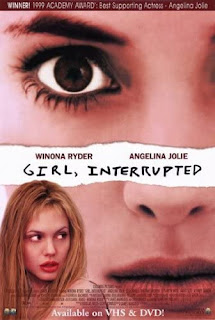 Mental illness is a complex and often misunderstood condition that affects millions of people all around the world. While movies can be a powerful tool for reducing stigma and raising awareness that's attributed to mental illness, in the same breath, they can also perpetuate stereotypes and myths. In this article (written by those nice folks over at australian online casino), we'll explore the portrayal of mental illness in movies, including the stereotypes and misconceptions that are often perpetuated, and how movies can contribute to a better understanding of the aforementioned condition.
Mental illness is a complex and often misunderstood condition that affects millions of people all around the world. While movies can be a powerful tool for reducing stigma and raising awareness that's attributed to mental illness, in the same breath, they can also perpetuate stereotypes and myths. In this article (written by those nice folks over at australian online casino), we'll explore the portrayal of mental illness in movies, including the stereotypes and misconceptions that are often perpetuated, and how movies can contribute to a better understanding of the aforementioned condition.
Stereotypes and Misconceptions
One of the most common stereotypes about mental illness is that people with this condition are dangerous or violent. This is perpetuated in movies such as the 1960 classic, 'Psycho', as well as the 1975 award-winning drama, 'One Flew Over the Cuckoo's Nest', which both portray people with mental illness as unpredictable and potentially dangerous. Heck, this stereotype is not only inaccurate but also stigmatizing, as it can lead to discrimination and fear of those with mental illness.
Another common stereotype is that people with mental illness are helpless and cannot function normally in society. Movies such as 2001's 'A Beautiful Mind' and 2012's 'Silver Linings Playbook' have perpetuated this stereotype by portraying people with mental illness as if they were unable to function in their daily lives. While it's true that some people with mental illness may struggle with daily activities, many can lead successful and fulfilling lives with the right support and treatment.
Realistic Portrayals
Despite the prevalence of stereotypes and misconceptions in movies, some movies have done an excellent job of portraying mental illness realistically and sensitively. For example, the 1999 drama, 'Girl, Interrupted', explores the experiences of a young woman who is diagnosed with borderline personality disorder and is admitted to a psychiatric hospital. Whereas the 2012 movie, 'The Perks of Being a Wallflower', examines the experiences of a teenage boy who is struggling with depression and post-traumatic stress disorder. Fortunately, both movies portray the complexities of mental illness in a realistic fashion and they highlight the importance of seeking proper help and support.
Conclusion
Movies have the power to shape our perceptions and beliefs about mental illness. While some movies have perpetuated harmful stereotypes and misconceptions, others have done an excellent job of portraying mental illness realistically and sensitively. Either way, the key to reducing stigma and promoting understanding is to continue to create movies that accurately portray mental illness and to raise awareness about the realities of living with this condition. By doing so, we can promote empathy, understanding, and support for those who are struggling with mental illness, without making it seem like a game played at gambling360 online casino.
THE PORTRAYAL OF MENTAL ILLNESS IN MOVIES
 Reviewed by David Andrews
on
May 18, 2023
Rating:
Reviewed by David Andrews
on
May 18, 2023
Rating:
 Reviewed by David Andrews
on
May 18, 2023
Rating:
Reviewed by David Andrews
on
May 18, 2023
Rating:








No comments: